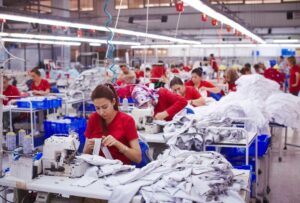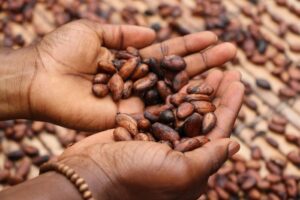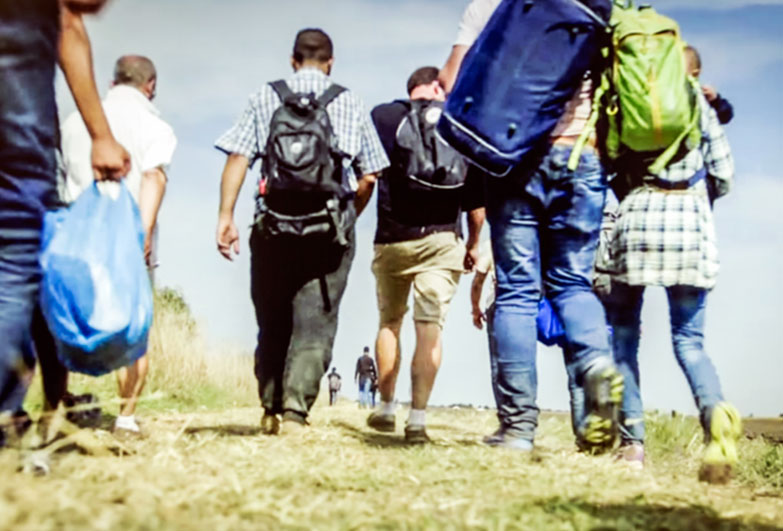Here in the UK, many of the products we use every day depend on forced labour. In nearly every country in the world, people are pushed into forced labour to make our cotton, coffee, make up, mobile phones and more. Many of the profits of this exploitation are going into the pockets of companies operating right here in the UK.
We believe that ensuring forced labour or other human rights abuses don’t exist in a company’s supply chain shouldn’t be the choice of a company – it must be the law.
We need a new law to hold business and the public sector to account when they fail to prevent supply chain human rights abuses and environmental harms.
That’s why we’re calling for a new UK law to make sure companies do everything they possibly can to ensure their supply chains are free from human rights abuses and environmental destruction.
Uyghur forced labour

Right now, the Chinese government has detained more than 1 million Uyghur and other Turkic and Muslim-majority peoples in internment camps and prisons in the Xinjiang Uyghur Autonomous Region, China.
Forced labour, affecting factories and farms across the region and China, makes up a key part of the Chinese government’s system of control.
Worse still, multinational companies are profiting from this modern slavery, including some the world’s largest brands.
Shockingly, UK companies sourcing materials produced by the forced labour of Uyghurs (e.g. cotton) are not breaking any law – despite us having laws like the Modern Slavery Act.
And shamefully, because of pressure from the Chinese government, companies that own high street brands have removed policies against the forced labour of Uyghurs.
We’re working alongside Uyghur activists to fight for justice:
“We Uyghurs are so grateful for the support and solidarity we’ve already received from the UK. But we need the law to make sure that big business stops selling goods made off the back of human rights abuses and environmental destruction.” Rahima Mahmut, UK Director, World Uyghur Congress.
Child slavery: Cocoa
 Every year, 70% per cent of the world’s cocoa beans are produced on small farms in West Africa. The two largest producers, Côte D’Ivoire and Ghana, produce more than half the world’s cocoa.
Every year, 70% per cent of the world’s cocoa beans are produced on small farms in West Africa. The two largest producers, Côte D’Ivoire and Ghana, produce more than half the world’s cocoa.
However, the industry is rife with human rights and environmental abuses, including child and adult forced labour and environmental damage.
Estimates suggest that 30,000 children and adults work in forced labour on cocoa plantations in Côte D’Ivoire and Ghana alone. In both countries, children as young as five are kidnapped or bought, and trafficked to cocoa plantations, to make chocolate products sold all around the world.
There are reports of traffickers selling these children to owners of cocoa plantations for the equivalent of €230.
A combination of factors drives child labour that can lead to forced labour in the region, including chronic poverty, lack of access to education, insufficient land and the low bargaining power of farmers to secure prices that provide a living income. All cocoa suppliers around the world that source from West Africa are affected by these issues.
